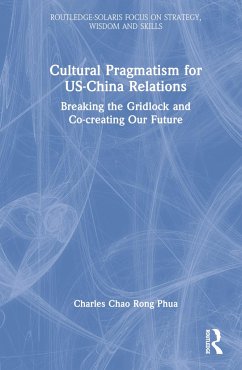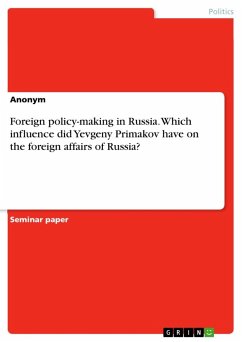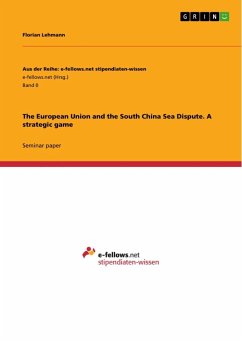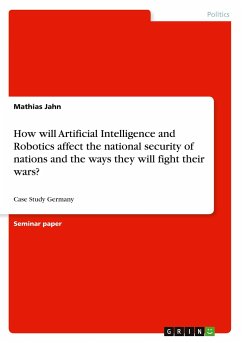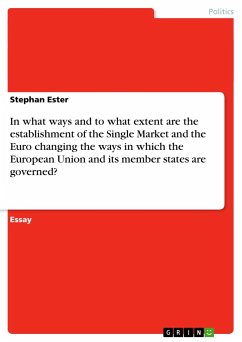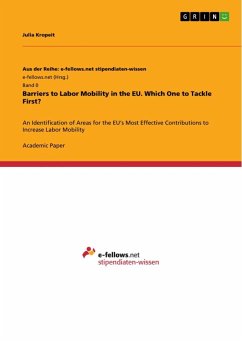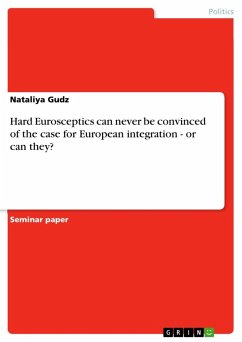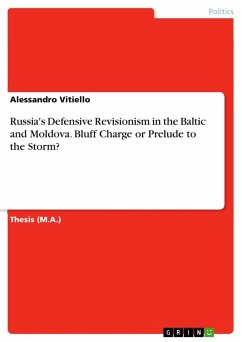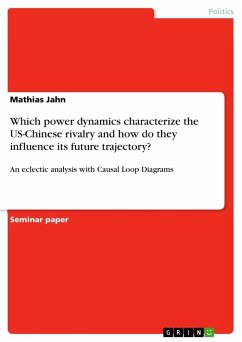
Which power dynamics characterize the US-Chinese rivalry and how do they influence its future trajectory?
An eclectic analysis with Causal Loop Diagrams

PAYBACK Punkte
0 °P sammeln!
Seminar paper from the year 2023 in the subject Politics - Topic: Peace and Conflict, Security, grade: A-, Nanyang Technological University (S. Rajaratnam School of International Studies (RSIS)), course: International Relations in Northeast Asia, language: English, abstract: The trajectory of rising US-Chinese tensions in the past decade, their future development into an ever-increasing rivalry or potential armed clash is a dominant topic debated in ¿International Relations Theory (IRT)¿. By selecting a particular IRT, analysts determine perceptions and optimistic/pessimistic attitudes regar...
Seminar paper from the year 2023 in the subject Politics - Topic: Peace and Conflict, Security, grade: A-, Nanyang Technological University (S. Rajaratnam School of International Studies (RSIS)), course: International Relations in Northeast Asia, language: English, abstract: The trajectory of rising US-Chinese tensions in the past decade, their future development into an ever-increasing rivalry or potential armed clash is a dominant topic debated in ¿International Relations Theory (IRT)¿. By selecting a particular IRT, analysts determine perceptions and optimistic/pessimistic attitudes regarding state-related interaction patterns. Here, the Western IRT discourse provides hard/soft power analyses which are criticized for a) being too parsimonious and fueling confrontative self-fulfilling prophecies (realism), b) projecting its Western-centric tenets onto a different cultural context leading to interventionism (liberalism), and c) being too optimistic about changing belligerent identities (constructivism). While eclectic approaches try to mitigate these shortfalls, they still omit the extant Chinese IRT, mainly revolving around relational power. In turn, the different Chinese perspectives are equally criticized for a) possessing ¿little¿ generalization potential due to their ¿Sino-centric¿ nature, b) transporting an ¿anti-Western¿ agenda, c) legitimizing Chinäs ¿political actions¿, and d) assuming a benevolent/ non-confrontative Chinese actor. Thus, the paper aims to add an eclectic meta-perspective to the debate by bridging the different IRTs with a systems dynamics analysis that translates/integrates the power dynamics into ¿Causal Loop Diagrams (CLDs)¿. It does so to offer an informed answer to the research question of which power dynamics characterize the US-Chinese rivalry and how they influence the future trajectory of their relations.




